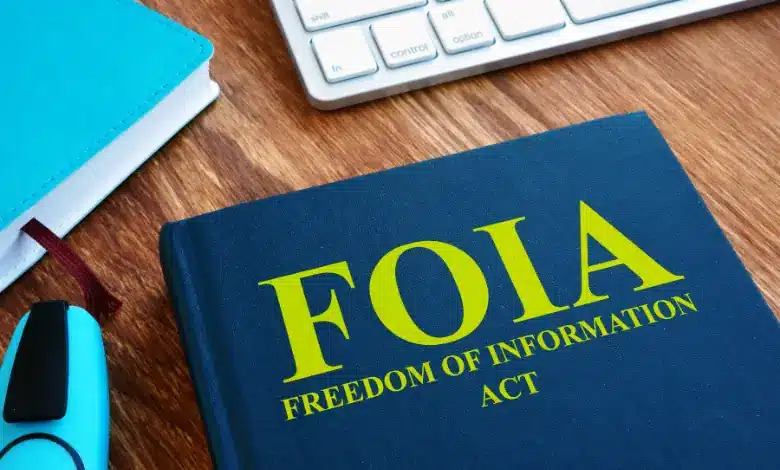Freedom of Information Act Explained

The Freedom of Information Act, often abbreviated as FOIA, is a crucial legislation that promotes transparency and accountability in government operations. FOIA grants individuals the right to access information held by federal government agencies, state governments, and local authorities. It empowers citizens, including high school students, to request and obtain a wide range of government records, making it a vital tool in a democratic society. But what is FOIA? And how does it work?
The Right to Access Information
FOIA grants individuals a fundamental and invaluable right to access various government records and documents. This right extends unconditionally to all citizens, regardless of age, background, or affiliations. For high school students, this access is a powerful tool that goes beyond the classroom. It opens doors to a world of information that can be harnessed for various purposes.
The right to access information is vital in holding government agencies accountable for their actions. When individuals can scrutinize government records and documents, it becomes easier to identify discrepancies, potential misconduct, or mismanagement of public resources. This transparency serves as a powerful check on governmental power, reinforcing the principles of democracy.
The FOIA Request Process
The Freedom of Information Act provides a structured process that individuals must navigate to exercise their right to access information. This process is designed to ensure that information is accessible to those seeking it while allowing government agencies to manage the flow of requests efficiently.
The process begins with submitting a formal FOIA request to the relevant government agency. It is essential to make this request as specific as possible, clearly outlining the desired documents or information. Clarity in the request is key to expediting the process and obtaining the relevant information.
Once the request is submitted, government agencies must respond within a reasonable timeframe, typically 20 business days. This timeframe ensures that individuals promptly respond to requests, preventing unnecessary delays. It’s important to note that government agencies are also encouraged to assist individuals in formulating their requests to ensure accuracy and specificity.
This structured FOIA request process bridges citizens and government agencies, allowing for a systematic and organized exchange of information vital for a functioning democracy.
Exceptions to FOIA
While FOIA is a potent tool for transparency, it is not an absolute right. There are exceptions in place to safeguard specific types of sensitive information. These exceptions exist to strike a delicate balance between transparency and the need to protect certain categories of data.
One of the most significant exceptions is related to national security details. Government agencies often deal with information that, if disclosed, could compromise the safety and security of the nation. Therefore, FOIA includes provisions that allow agencies to withhold information that falls under this category. This is not intended to hide wrongdoing but to protect vital national interests.
Another essential exception pertains to personal privacy concerns. FOIA recognizes that individuals have a right to privacy, and their personal information, such as medical records or Social Security Numbers, should be shielded from public scrutiny. This exception ensures that sensitive personal data remains confidential.
Additionally, FOIA provides exceptions for confidential business records. It acknowledges that businesses may share proprietary or confidential information with the government. In such cases, the government must protect this information to encourage cooperation and information sharing for regulatory purposes.
Understanding these exceptions is crucial for individuals seeking information through FOIA. It highlights the complexity of balancing transparency with protecting sensitive data and underscores the importance of responsible information access.
Challenging FOIA Denials
Government agencies may sometimes deny a FOIA request, citing one of the earlier exceptions. However, it’s important to emphasize that the right to access information does not abruptly end with a denial. FOIA includes a built-in mechanism that allows individuals to challenge these denials and appeal the decision.
This safeguard ensures the FOIA process remains fair, transparent, and accountable. It underscores the principle that the government should be open to public scrutiny whenever possible. When a request is denied, individuals have the right to question that denial, request a review of the decision, and provide arguments for why the information should be disclosed.
This appeals process ensures that FOIA remains an effective tool for citizens to hold government agencies accountable. It allows citizens to challenge any wrongful denials, ensuring that information is not needlessly withheld and reinforcing the principles of transparency and accountability in a democratic society.
Conclusion
In conclusion, the Freedom of Information Act (FOIA) promotes transparency and accountability in government operations. It grants all citizens, including high school students, the right to access government information, empowering them to be informed and engaged members of society. Understanding “What is FOIA,” the purpose of FOIA, the right to access information, the request process, exceptions, and the ability to challenge denials provides individuals with the tools they need to exercise their right to know. FOIA is a cornerstone of democracy, ensuring that government actions are subject to public scrutiny and fostering an informed citizenry.
Explore the fascinating world we’ve uncovered and check out the full article for an in-depth journey into the realm of possibilities.






